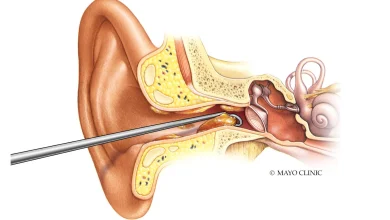What To Know About Breastfeeding A Newborn For New Moms (and Dads!)

Whether this is your first or fifth baby, deciding to breastfeed is something that all moms need to consider. After all, breastfeeding your baby enables bonding, has been linked to a reduction in the risk of breast cancer, and is also the best option for your baby, too, as the nutrients in breast milk are naturally tailored to your baby’s needs.
But feeding your baby this way does not always come naturally or easily, especially if this is your first child. So, here are some things that new moms and dads need to know about breastfeeding so that they can hopefully feel a little more prepared if they choose to try it.
Table of Contents
Latching
For some mothers, their baby is attracted to their breasts from birth, making latching seem like an afterthought. However, for most moms, it can take a bit more practice for the baby to latch correctly.
There are several ways to help your baby latch, such as placing the nipple around your baby’s lips and waiting for them to open their mouths. Remember, if you are struggling with breastfeeding, there is no need to suffer in silence, and you should seek out a lactation consultant to help you establish a strong latch.
Breast Milk Comes In Three Steps
In the first few weeks, the breastmilk you feed your baby will be different from the milk they will receive after six weeks. It’s a very cool, natural process that’s as fascinating as it is normal!
In the first few days, you will be producing colostrum, which has antibodies to fight infections in the first few days and is yellow in color. When your baby is three to five days old, this will shift to transitional milk. This looks like an odd mixture of milk and orange juice and is the transitional step between colostrum and regular breast milk.
Mature milk tends to arrive by the tenth day, and it is white and thinner than traditional milk. In fact, it looks more like skimmed cow’s milk, and it can even look blue at first!
It’s A Full-Time Job!
Breastfeeding a newborn is no easy feat! Newborns will need feeding every two to three hours, and in the beginning, these sessions can be very long.
The feeding is usually completed when the baby unlatches or when the breast they were feeding on has been completely drained. This can take between 20-45 minutes for more newborns but try not to rush them.
You Will Need To Eat More
When you are breastfeeding, you will need to up your calorific intake. While there is no need to become obsessive like you did when you were carrying the baby, a healthy postpartum diet will help with the success of breastfeeding.
Be sure to drink lots of water, at least eight glasses a day, to prevent your breast from drying up. Eat balanced foods, whole grains, protein, and lots of fruit and veg. Fats are important too, but just make sure they are healthy ones, such as omega-3 fats.
It Should Not Hurt
Many women become concerned when they begin breastfeeding their baby, especially if they experience pain. Breastfeeding should not be painful; if it is, it can point to an issue such as mastitis – an inflammation in the breast caused by infection. If you have any concerns about breastfeeding discomfort, seek the help of a doctor.




